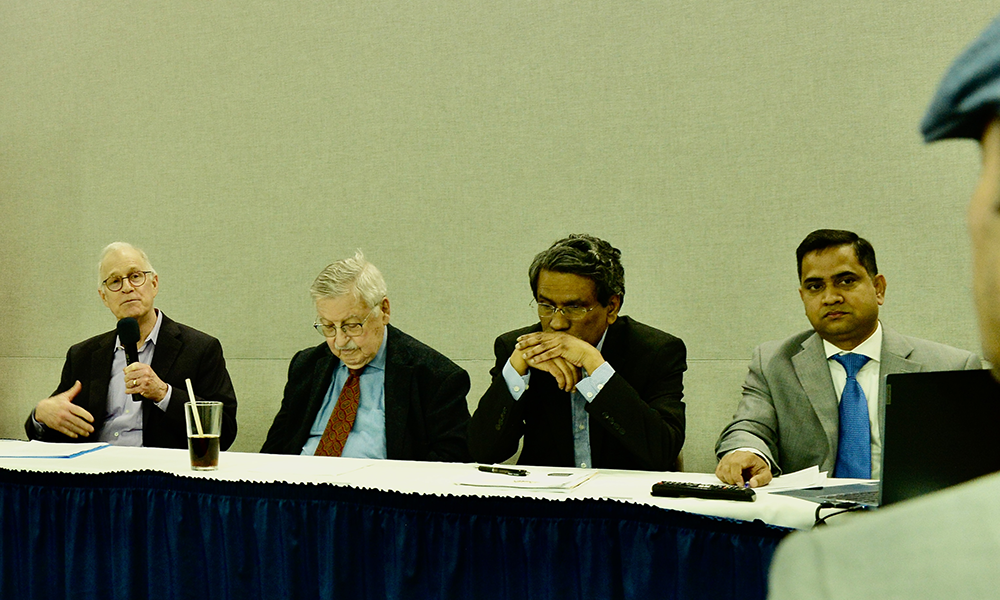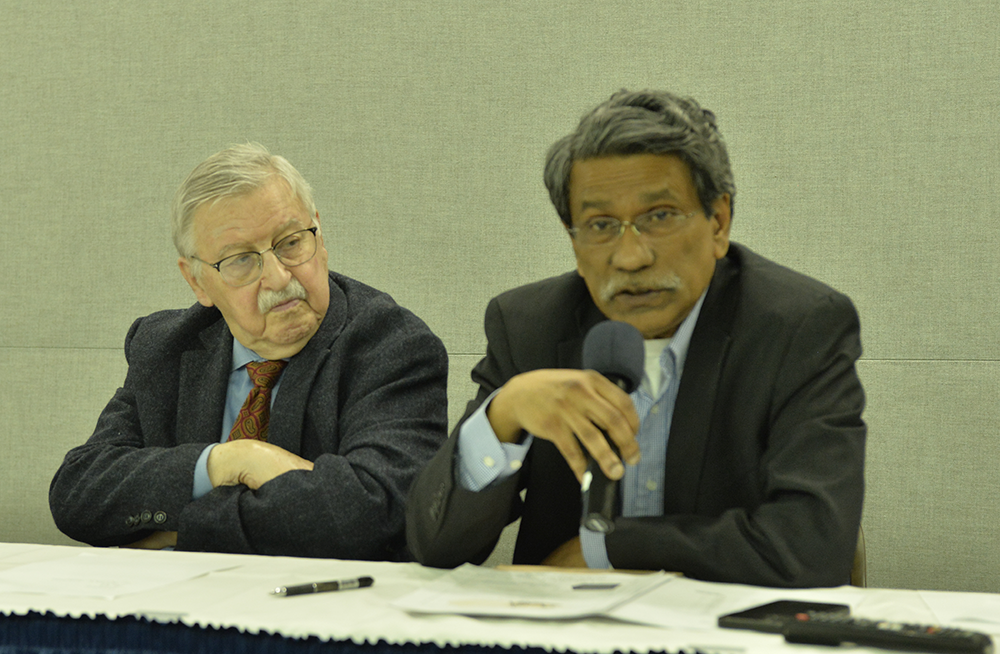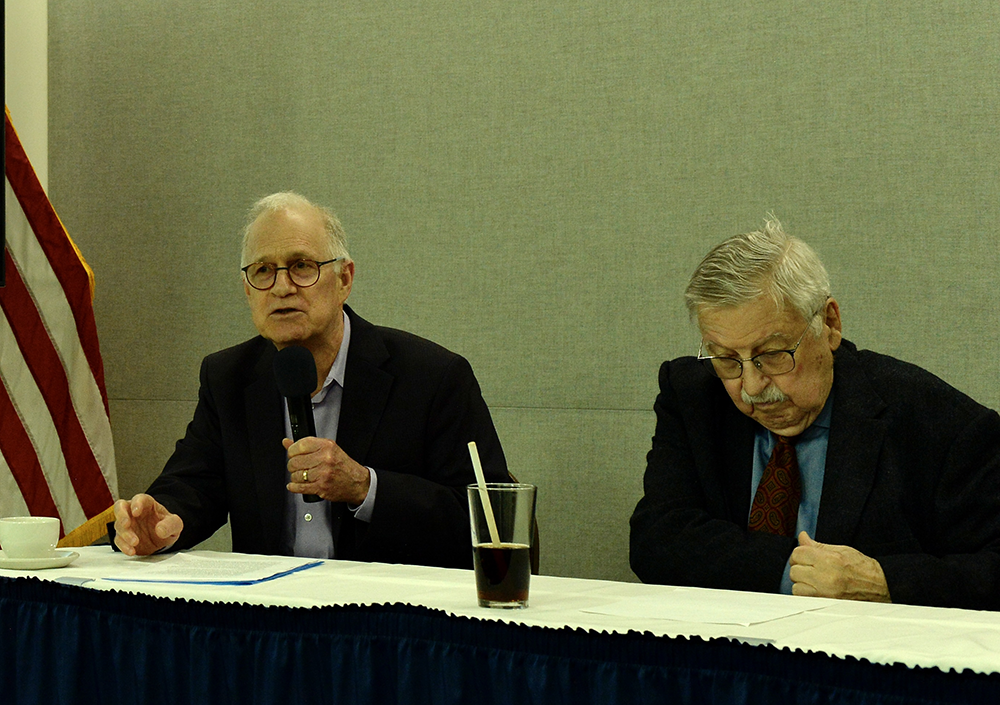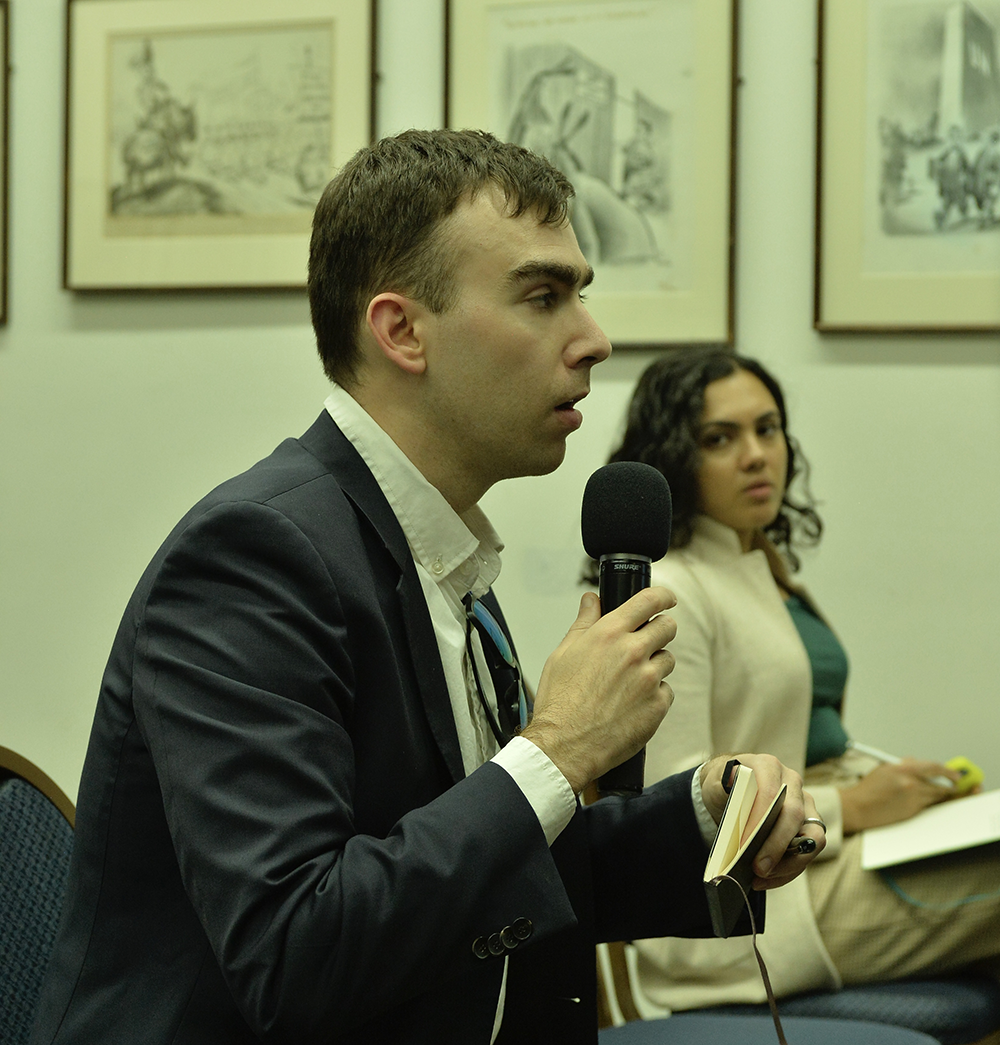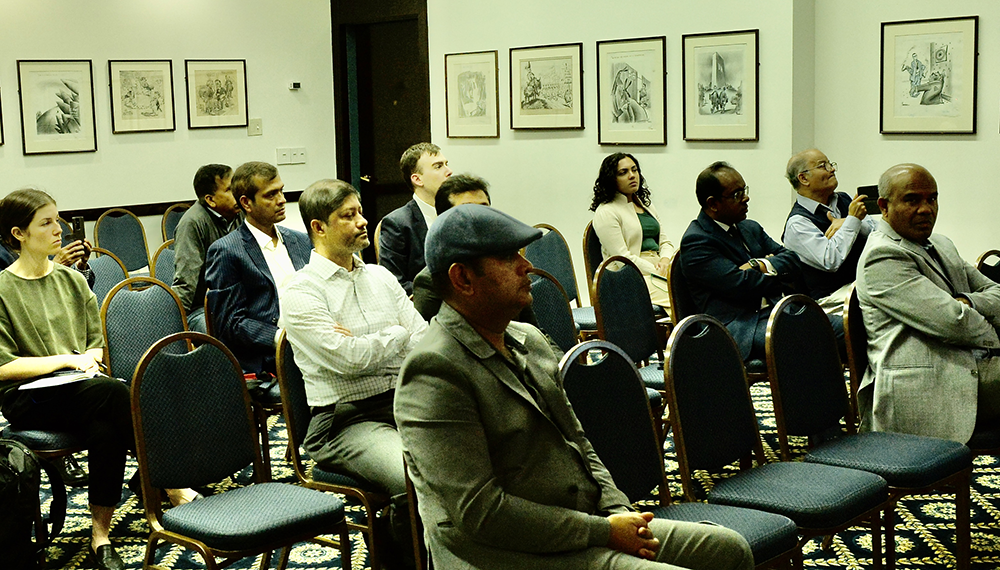In a panel discussion entitled “Freedom of Expression in Bangladesh and Future Challenges,” organized sponsored by the Washington-based rights organization ‘Right to Freedom,’ on May 16, experts and journalistsparticipants emphasized the inseparable link between freedom of expression and political change in the country. The event shed lighthighlighted on the increasing repression faced by journalists and media organizations in Bangladesh, signaling a concerning decline in respect for democratic values.Steven Butler, senior program consultant for the Committee to Protect Journalists (CPJ), opened the discussion by emphasizing the significance of media freedom as a fundamental pillar of democracy. Drawing parallels with recent attacks on journalists in the United States, Butler highlighted the disturbing trend of curbing freedom of the press in Bangladesh. He argued that in a free society, it is was the role of journalists to criticize the government, not the government’s duty to stifle their voices. The targeting of journalists, including the case against Prothom Alo editor Rozina Islam, exemplified the government’s hostility towards media criticism.
Photographer Shahidul Alam’s arrest was cited as another example of the government’s crackdown on dissenting voices. Despite international pressure, harassment against journalists persisted, indicating displaying a troubling disregard for freedom of expression. Incidents such as the recent attack on the brother of British expatriate journalist Zulqarnain Sayer Khan Samir further highlighted the gravity of the situation, suggesting a pattern of assaults against journalists.
Ali Riaz, Distinguished Professor of Politics and Government at the Illinois State University mentioneds that there is was a paradox in the media landscape of Bangladesh – while the number of media hads increased significantly in the past decade, freedom of expression hads decreased exponentially. He also, expressed concerns about the future of Bangladesh’s political landscape. He Riaz warned that if elections were held under the current restrictive environment imposed by the government, not only the media but the overall political situation would face significant challenges. Riaz emphasized that meaningful discussions about Bangladesh’s future must address the necessity of changing the current regime, asacknowdledge the autocratic tendencies exhibited by the government that posed a threat to the country’s democratic values.
Nurul Kabir, editor of English daily New Age, connected participating remotely directly from Dhaka, emphasizing emphasized that millions of people in Bangladesh cherished democratic values and freedom. However, he lamented the lack of understanding among some legislators regarding the distinctions between the state, government, and political parties. Kabir attributed many of the country’s problems to the prevailing lack of education among the ruling elite. He further criticized the government’s financial arm-twisting tactics against newspapers critical of the government, citing the withholding of government advertisements and the redirection of private-sector advertisements away from these publications.
Kabir also condemned Bangladesh’s Digital Security Act, labeling it a tool of tyranny wielded against journalists rather than a beneficial legislation for the country. The Act has further undermined the freedom of expression and press freedom in Bangladesh.
Responding to a question, Dr. Riaz, another participant in the panel discussion , stressed that fixing the problems facing freedom of expression was not solely the responsibility of journalists but also the people of Bangladesh and political parties. He cautioned that the upcoming 2023 election would be a consequential year for the country’s political landscape.
The panel discussion was moderated by Ambassador William B. Milam, President of the Right to Freedom, and featured a welcome speech by Mushfiqur Fazal Ansarey, the organization’s Executive Director. The event served as a platform to raise awareness about the deteriorating state of freedom of expression in Bangladesh and the urgent need for political change action to safeguard democratic values.

